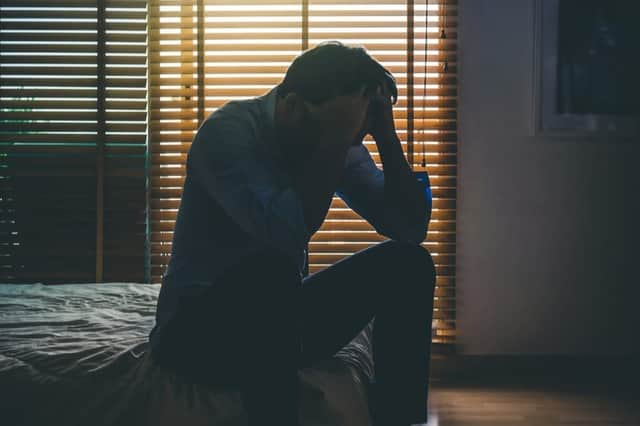What is PTSD and how can I tell if I have it?


Post-traumatic stress disorder (often shortened to PTSD) is an anxiety disorder estimated to affect around one in every three people who have a traumatic experience, according to the NHS.
Singer Ariana Grande has revealed that she has suffered from PTSD since the terrorist attack at Manchester Arena in May 2017, which took place while Grande was performing.
Advertisement
Hide AdAdvertisement
Hide AdA post shared by Ariana Grande (@arianagrande) on May 7, 2018 at 10:35pm PDT
The symptoms of PTSD are often so severe that they affect the sufferer's quality of life on a day-to-day basis, yet it still remains unclear why some people develop the condition while others don't.
If you are concerned that you or someone you know may be living with PTSD, here are some of the most common symptoms to look out for, and advice on what to do next.
What are the symptoms of PTSD?
As with all mental illnesses, PTSD is a complicated condition, but the NHS advise that some of the most common symptoms tend to centre around re-experiencing a traumatic event.
Advertisement
Hide AdAdvertisement
Hide AdThe sufferer may involuntarily and vividly re-live the event in question through flashbacks, nightmares or repetitive and distressing images or sensations. Physical symptoms can include unexplained pain, sweating, nausea or trembling.
Some have constant negative thoughts about their experience and are unable to accept or come to terms with the event. Others may do everything they can to avoid thinking or talking about the traumatic event, either by distracting themselves with work and hobbies, or withdrawing into themselves.
Anxiety is often a big part of PTSD, and those with the condition can be prone to irritability, angry outbursts, insomnia and an inability to concentrate.
What can cause PTSD?
According to the NHS, the kinds of experiences that can cause PTSD include:
Advertisement
Hide AdAdvertisement
Hide AdSerious road accidentsViolent personal assaults, such as sexual assault, mugging or robberyProlonged sexual abuse, violence or severe neglectWitnessing violent deathsMilitary combatBeing held hostageTerrorist attacksNatural disasters, such as severe floods, earthquakes or tsunamis
When do symptoms normally develop?
The disorder can start immediately after a disturbing experience, or develop weeks, months and even years after the event took place.
When should I speak to my doctor?
It is natural to be upset by a traumatic event, but if you are experiencing the kinds of symptoms outlined above four or more weeks following the experience, you should visit your GP.
If necessary, your doctor will refer you to a mental health specialist.
Is there a cure?
Advertisement
Hide AdAdvertisement
Hide AdPTSD can be successfully treated, even if the condition rears his head unexpectedly after a long period of time.
The main forms of treatment for the disorder are watchful waiting (where your mental health is monitored in case symptoms appear or get worse), talking therapies or medication, including antidepressants.